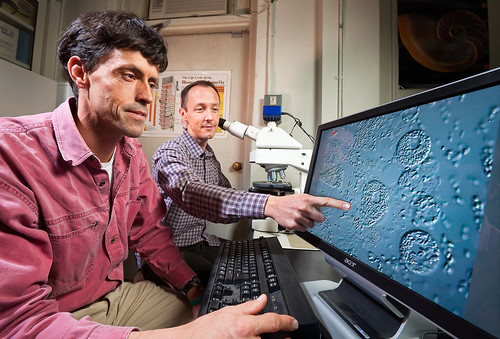
“Top grade,” “strong,” “substantially strengthened,” and “significantly improved,” may sound like reviews you might read about consumer products such as smart phones or televisions. However, these are the actual terms used by the Union of Concerned Scientists (UCS) in its recent review of USDA’s updated Scientific Integrity Policy.
In a January 2017 report titled “Preserving Scientific Integrity in Federal Policymaking,” the UCS - a noted organization that represents the interests of the scientific community - gave USDA’s updated Scientific Integrity Policy (or SIP, for short) the highest rating assigned in a three-tiered rating system. Additionally, based on USDA’s release of a new procedural manual to accompany the SIP, USDA was one of only five federal departments or agencies (out of 18 reviewed) to receive a “strong” rating for its procedures for responding to scientific integrity concerns.
The Department has had a sustained commitment to developing a comprehensive department-wide SIP aimed at ensuring the highest level of quality, accuracy, and openness in all aspects of our scientific and technological processes and analyses. In 2011, USDA was among the first Federal departments to issue a scientific integrity policy. In 2013, USDA issued a more detailed version of the policy. Following issuance of an updated SIP in 2016 and an accompanying procedural manual, UCS blogged that USDA’s SIP merited a “top grade” because it was “significantly improved in the protections it provides for USDA scientists” and “substantially strengthened.”
The Department is pleased to receive recognition for its SIP, which is intended to instill public confidence in the excellence, transparency, and innovation of USDA’s scientific research and science-based public policymaking. We have also taken several other demonstrable actions to foster a culture of scientific integrity, including:
- Launching a Web-based training course on scientific integrity that has been completed by more than 18,000 employees;
- Developing a Website to serve as a source of information on USDA’s scientific integrity policies, procedures, and activities;
- Designating individuals in each of the Department’s component agencies to serve as Agency Scientific Integrity Officers, who are available to speak confidentially with employees about scientific integrity issues and work with them to resolve concerns; and
- Designating an individual to serve as the Departmental Scientific Integrity Officer, who has responsibilities for providing leadership and coordination on scientific integrity-related issues across the Department.
At USDA, we know that scientific integrity is woven into the fabric of the research that we conduct and the decisions that we make. We are glad that others recognize this as well.

